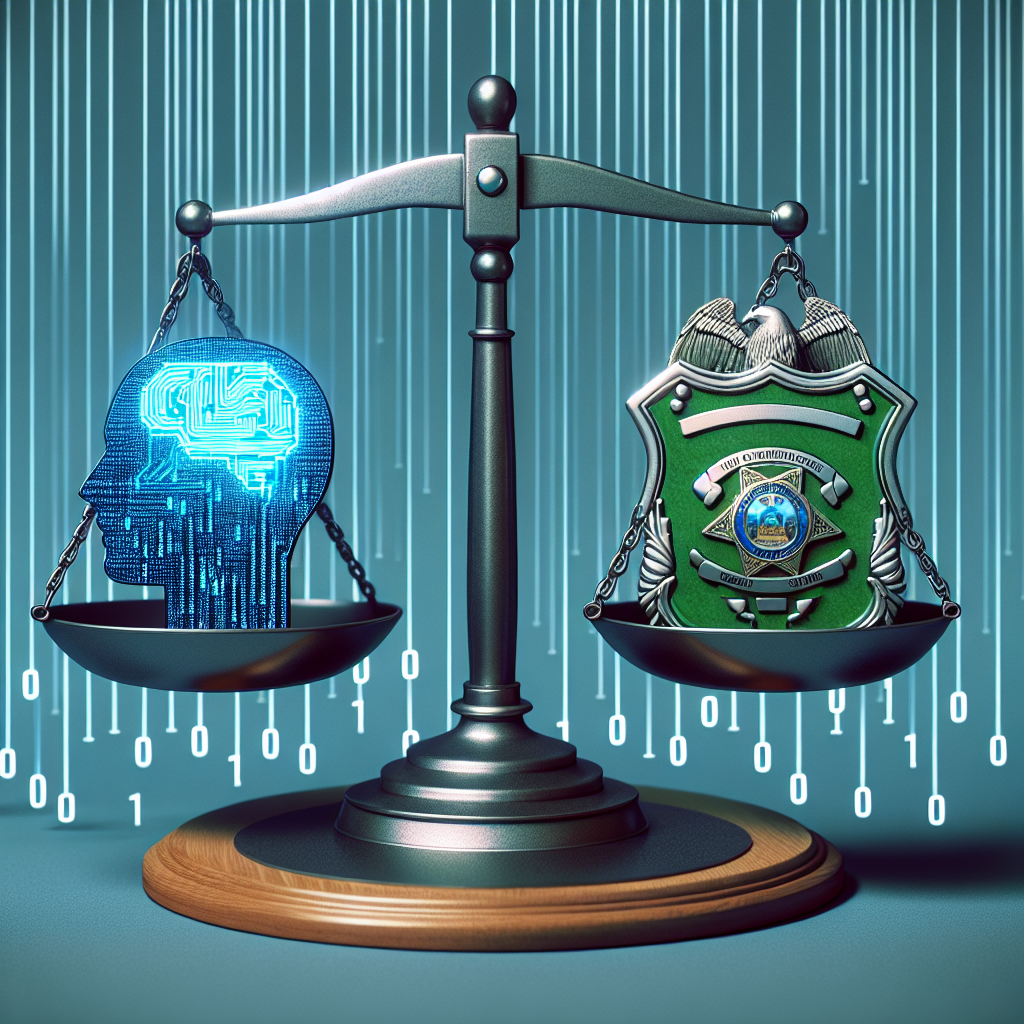The Influence of AI Development in Law Enforcement
Artificial Intelligence (AI) technology is rapidly transforming various industries, and law enforcement is no exception. From predictive policing to facial recognition software, AI is being used to streamline operations, improve efficiency, and enhance public safety. However, the use of AI in law enforcement also raises ethical and privacy concerns that must be carefully addressed. In this article, we will explore the influence of AI development in law enforcement, discussing its benefits, challenges, and implications for society.
Benefits of AI in Law Enforcement
1. Predictive Policing: AI algorithms can analyze vast amounts of data to predict where and when crimes are likely to occur. This helps law enforcement agencies allocate resources more effectively and prevent crimes before they happen.
2. Facial Recognition: AI-powered facial recognition technology can help identify suspects and missing persons quickly and accurately. This can lead to faster apprehension of criminals and increased public safety.
3. Traffic Management: AI systems can analyze traffic patterns, monitor traffic violations, and optimize traffic flow. This helps reduce congestion, improve road safety, and enhance overall transportation efficiency.
4. Evidence Analysis: AI tools can analyze large volumes of evidence, such as video footage and audio recordings, to assist in criminal investigations. This can help law enforcement agencies solve cases more quickly and accurately.
5. Risk Assessment: AI algorithms can analyze factors such as criminal history, social media activity, and other data to assess the risk posed by individuals. This can help law enforcement agencies prioritize resources and interventions.
Challenges of AI in Law Enforcement
1. Bias and Discrimination: AI algorithms can inherit biases from the data they are trained on, leading to discriminatory outcomes. This can result in unfair treatment of certain groups and perpetuate existing social inequalities.
2. Privacy Concerns: The use of AI in law enforcement raises concerns about privacy and surveillance. Facial recognition technology, in particular, has sparked debates about the right to privacy and the potential for mass surveillance.
3. Lack of Transparency: The complexity of AI algorithms can make it difficult to understand how decisions are made. This lack of transparency can raise questions about accountability and due process in law enforcement.
4. Reliability and Accuracy: AI systems are not infallible and can make errors, leading to false identifications and wrongful accusations. Ensuring the reliability and accuracy of AI technologies is crucial for maintaining public trust in law enforcement.
5. Ethical Dilemmas: The use of AI in law enforcement raises ethical dilemmas, such as the trade-off between public safety and individual rights. Balancing these competing interests requires careful consideration and oversight.
Implications for Society
The increasing use of AI in law enforcement has wide-ranging implications for society. On the one hand, AI technologies have the potential to enhance public safety, improve efficiency, and reduce crime rates. On the other hand, the use of AI raises concerns about privacy, bias, and accountability that must be addressed to ensure fair and just outcomes.
As AI technologies continue to advance, it is essential for law enforcement agencies to adopt policies and practices that promote transparency, accountability, and ethical use of AI. This includes ensuring that algorithms are regularly audited for bias, providing clear guidelines for the use of AI technologies, and respecting individuals’ rights to privacy and due process.
In conclusion, the influence of AI development in law enforcement is complex and multifaceted. While AI technologies offer significant benefits for public safety and crime prevention, they also present challenges that must be carefully navigated. By addressing issues of bias, transparency, and privacy, law enforcement agencies can harness the power of AI to enhance their operations while upholding the principles of fairness and justice.
FAQs
Q: How is AI used in predictive policing?
A: AI algorithms analyze historical crime data to predict where and when crimes are likely to occur, helping law enforcement agencies allocate resources more effectively.
Q: What are the privacy concerns associated with facial recognition technology?
A: Facial recognition technology raises concerns about mass surveillance, invasion of privacy, and potential misuse of personal data.
Q: How can law enforcement agencies ensure the reliability and accuracy of AI technologies?
A: Law enforcement agencies can conduct regular audits of AI algorithms, provide training for officers on the use of AI technologies, and establish clear guidelines for the deployment of AI in policing operations.
Q: What ethical dilemmas are raised by the use of AI in law enforcement?
A: Ethical dilemmas include the trade-off between public safety and individual rights, the potential for bias and discrimination in AI algorithms, and the need to balance security concerns with privacy rights.
Q: How can society benefit from the use of AI in law enforcement?
A: AI technologies can enhance public safety, improve efficiency in law enforcement operations, and help prevent crimes before they happen.
Overall, the influence of AI development in law enforcement is a topic that requires careful consideration and ongoing dialogue. By addressing the benefits, challenges, and implications of AI in policing, we can work towards harnessing the power of technology to create a safer and more just society.

